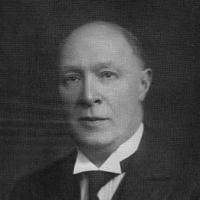Lewis Spence
Born
in Monifieth, Angus, Scotland
November 25, 1874
Died
March 03, 1955
Genre
Influences

|
Ancient Egyptian Myths and Legends
—
published
1915
—
67 editions
|
|

|
The Mythologies of Ancient Mexico and Peru
—
published
1913
—
149 editions
|
|

|
An Encyclopaedia of Occultism
—
published
1920
—
61 editions
|
|

|
The History of Atlantis
—
published
1968
—
56 editions
|
|

|
The Popul Vuh
—
published
1908
—
4 editions
|
|

|
The Myths of the North American Indians
—
published
1913
—
73 editions
|
|

|
North American Indians: Myths and Legends
—
published
1914
—
38 editions
|
|

|
The Magic Arts in Celtic Britain
—
published
1946
—
15 editions
|
|

|
The Mysteries of Britain: Secret Rites and Traditions of Ancient Britain
—
published
1928
—
17 editions
|
|

|
A Brief Guide to Native American Myths and Legends
by
—
published
2013
—
7 editions
|
|
“I should add, however, that, particularly on the occasion of Samhain, bonfires were lit with the express intention of scaring away the demonic forces of winter, and we know that, at Bealltainn in Scotland, offerings of baked custard were made within the last hundred and seventy years to the eponymous spirits of wild animals which were particularly prone to prey upon the flocks - the eagle, the crow, and the fox, among others. Indeed, at these seasons all supernatural beings were held in peculiar dread. It seems by no means improbable that these circumstances reveal conditions arising out of a later solar pagan worship in respect of which the cult of fairy was relatively greatly more ancient, and perhaps held to be somewhat inimical.”
― British Fairy Origins
― British Fairy Origins
“At Bealltainn, or May Day, every effort was made to scare away the fairies, who were particularly dreaded at this season. In the West Highlands charms were used to avert their influence. In the Isle of Man the gorse was set alight to keep them at a distance. In some parts of Ireland the house was sprinkled with holy water to ward off fairy influence. These are only a mere handful out of the large number of references available, but they seem to me to reveal an effort to avoid the attentions of discredited deities on occasions of festival once sacred to them. The gods duly return at the appointed season, but instead of being received with adoration, they are rebuffed by the descendants of their former worshippers, who have embraced a faith which regards them as demons.
In like manner the fairies in Ireland were chased away from the midsummer bonfires by casting fire at them. At the first approach of summer, the fairy folk of Scotland were wont to hold a "Rade," or ceremonial ride on horseback, when they were liable to tread down the growing grain.”
― British Fairy Origins
In like manner the fairies in Ireland were chased away from the midsummer bonfires by casting fire at them. At the first approach of summer, the fairy folk of Scotland were wont to hold a "Rade," or ceremonial ride on horseback, when they were liable to tread down the growing grain.”
― British Fairy Origins
“It must be understood that in some cases the process by which a god or goddess degenerates into a fairy may occupy centuries, and that in the passage of generations such an alteration may be brought about in appearance and traits as to make it seem impossible that any relationship actually exists between the old form and the new. This may be accounted for by the circumstance that in gradually assuming the traits of fairyhood the god or goddess may also have taken on the characteristics of fairies which Already existed in the minds of the folk, the elves of a past age, who were already elves at a period when he or she still flourished in the full vigour of godhead. For in one sense Faerie represents a species of limbo, a great abyss of traditional material, into which every kind of ancient belief came to be cast as the acceptance of one new faith after another dictated the abandonment of forms and ideas unacceptable to its doctrines. The difference between god and fairy is indeed the difference between religion and folk-lore.”
― British Fairy Origins
― British Fairy Origins
Topics Mentioning This Author
| topics | posts | views | last activity | |
|---|---|---|---|---|
| Heathens, Pagans ...: Currently reading? | 472 | 660 | Apr 06, 2019 09:22AM |
































